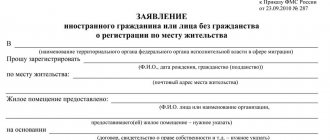Home » Housing disputes » Eviction of citizens from residential premises
In housing disputes, one of the most pressing issues in Russia is the problem of eviction from residential premises. This procedure requires compliance with all norms of Russian legislation, such as the pre-trial procedure for resolving a dispute, going to court, appealing to the SSP.
Yes, the owner of a residential premises has the right to dispose of the apartment at his own discretion, including moving in and evicting citizens, but his powers in this matter are not unlimited.
What is residential premises
First you need to understand what residential premises are in accordance with the law. This is a room intended and suitable for human habitation. In Art. 16 of the RF Housing Code specifies the categories of premises that can be residential, these are:
- private house, or part of it;
- apartment;
- room (in a dormitory or communal apartment).
Owners of residential premises may be:
- state;
- local government bodies;
- legal entities (organizations);
- individuals (citizens).
A property is recognized as residential only if it is suitable for permanent residence , otherwise it will not be recognized as residential.
For example, a builders' trailer, where they live while they are building an object, is not a residential premises. This will be a room for temporary accommodation of people. Also, a tent where victims of a flood or other natural disaster are temporarily located, or a hunter’s temporary shelter, will not be considered residential premises.
Grounds for eviction from residential premises
What is eviction? This is a set of actions as a result of which a citizen living in a residential building is evicted from it, and in cases where he is registered there, he is additionally deregistered.
In other words, the apartment or house is completely freed from the property of the evicted citizen and can subsequently be used by the owner. Often, in addition to simply vacating an apartment, eviction is used for:
- restoration of the rights of new owners , for example, if the apartment is sold and it has a new owner;
- punishments for violations when using residential premises, for example, in case of debt for utilities for a long time, or malicious violation of the rights of neighbors;
- restoration of the legal rights of the apartment owner if, for example, the residential premises are occupied by a citizen without permission;
- protecting the life and health of residents , for example, if a residential building is in disrepair.
There are two types of eviction:
- administrative;
- forced.
The differences lie in the nature of the eviction procedure, its timing, the participation of government agencies or private individuals in the eviction, and the costs. The forced eviction procedure is more stringent and lengthy.
The grounds for forced eviction are:
- Recognition of residential premises as unsafe . In this case, forced eviction is used quite rarely, since instead of an emergency one, the tenant receives a new, more comfortable living space.
- Transfer of a real estate object, or a land plot underneath it, into the ownership of the state for its needs . In this case, problems with eviction also rarely arise, since in return citizens receive either new housing or monetary compensation for the seized residential premises.
- Deliberate destruction or damage to residential premises . For example, illegal redevelopment with dismantling of load-bearing structures that affect the strength of the building and create a threat of its collapse.
- Use of the property for other purposes than its intended purpose . This could be the conversion of an apartment on the ground floor into a store, or an office, the use of a living space for a laboratory, or an industrial premises.
- Debt in payment of utility bills . This is only possible if the debtor does not pay for housing and communal services for more than six months.
- Expiration of the contract term . Possible if the apartment is used under a commercial or official lease agreement. If the contract is renewed, then eviction will not be necessary.
- Termination of the right to use the apartment . Most often it occurs after a divorce in cases where, for example, the husband lives in his wife’s apartment, or vice versa, and after the divorce the non-owner ceases to be a member of the family of the owner of the residential premises.
- Change of owner . If the residential premises are sold or donated to another citizen, then, provided that the contract does not stipulate the further residence of the previous owner, he must vacate the apartment.
- Violation of the rights of third parties . If a citizen leads an antisocial lifestyle, maliciously violates the rights of other residents of the apartment, neighbors, then he can be evicted.
When considering all grounds for eviction, other options for resolving the conflict are first considered; eviction is an exceptional measure, especially if a person does not have alternative housing and is experiencing financial difficulties.
Depending on who is the owner of the residential premises, the grounds for eviction and the specifics of the procedure will be different.
Eviction of tenants
The following violations are grounds for eviction of citizens living in residential premises under a social tenancy agreement:
- improper maintenance of municipal property (apartment);
- long-term, more than six months, debt on utility bills;
- malicious violation of the legal rights of neighbors;
- long absence from the place of registration.
Eviction of tenants is possible with the provision of alternative living quarters, or, in some cases, “to nowhere”; the second option of eviction is extremely rare.
Owners
The inviolability of private property in Russia is guaranteed by Art. 35 of the Constitution of the Russian Federation, therefore the eviction of the owner of a residential premises is a rather complicated process. In some cases, instead of the residential premises from which the owner is evicted, he is provided with alternative housing. Such situations occur when an apartment building is resettled if it is recognized as unsafe, or when it is transferred into state ownership, for example, if the land plot under the house is transferred for the construction of a federal road.
In any other situations with the eviction of the owner, he is not provided with other residential premises.
There is an opinion that it is impossible to evict the owner of a residential property for utility debts, no matter how great the debt is. However, if the owner of the apartment has accumulated a large debt, for example, has not paid for housing and communal services for a long time, then the management company has the right to file a claim for collection of debt on utility bills in court. And if the owner has no other property that can be foreclosed on, then the residential premises can be sold, the proceeds from the sale of the apartment will be used to pay off debts, and the remaining amount will be transferred to the offender.
The court will act in the same way if the residential premises are collateral, for example, with a mortgage loan, and the borrower does not pay the loan.
Eviction from a municipal apartment
To terminate a social tenancy agreement with a tenant in an area transferred for the use of a citizen by a municipal authority, the following grounds are provided:
- accumulation of debt for more than 6 months;
- damage to the premises by the tenant, his relatives or friends;
- use of an apartment or room in a communal apartment for other purposes;
- violation of the rights of neighbors, creation of conditions for unbearable living nearby, damage to their property, threats of physical violence, constant emotional pressure;
- violation of the purpose of using the premises, placement of production or warehouses, shops, or other commercial activities in it;
- destruction of a residential building, violation of its integrity by any means, which entails the destruction of property;
- change of purpose of the premises - transfer from residential to commercial by decision of municipal authorities ;
- recognition of a property as threatening collapse or collapse when issued by the relevant authority by the district administration.
In the above cases, deprivation of the right to use the premises does not require a court decision. Eviction is carried out in connection with regular violation of obligations in connection with the use of housing transferred for resettlement on the basis of orders from municipal authorities.
Expert opinion:
It should be noted that when a citizen is evicted from a social housing fund due to a violation of the rules for its use on the basis of Article 91.12 of the Housing Code of the Russian Federation, no other premises are provided.
Ignatieva R.E., bailiff
Features of eviction
The eviction of various categories of residents has its own characteristics, for example, the eviction of their privatized apartment differs from deregistration in a municipal residential building; it is much easier to evict an adult than a minor child.
Unregistered person
To evict a citizen who is not registered in a residential premises, it will be necessary to prove that he does not have the right to reside in this residential premises. The owner just needs to contact the local police officer, who, according to the owner, will help expel the unwanted tenant. But if a police officer doubts that the eviction is legal, the owner will be forced to go to court.
There are several rules, if followed, a potential tenant will not have the right to live in your apartment:
- There is no need to allow strangers to be in your apartment at night . Of course, if you have guests coming to visit you and you are sure that they are not going to stay with you for a long time, then you should not refuse them an overnight stay, but letting a distant relative stay for a week is quite risky.
- You cannot give the keys to the apartment to strangers , especially if they do not have their own home. A friend may ask to spend the night and then stay for a long time; you cannot then simply throw out his things, since this is arbitrariness.
- A rash step would be written permission for temporary registration in your residential premises . Often, a distant relative registered in another city asks for temporary registration in order, for example, to receive some kind of benefit or register with the employment service, and then the owner cannot get rid of him.
- You must not allow a citizen who has temporarily settled with you to pay for utilities from his own funds . If you later want to get rid of him, and he can prove that he participated in the maintenance of your home, it will be more difficult to evict him.
In some situations, lack of registration is not sufficient grounds for eviction. For example, if a wife is not registered in her husband’s apartment, but the marriage is not dissolved, then she is a member of the owner’s family and cannot be evicted.
In cases where a citizen was not registered in a residential premises, but had the right to reside, only a court can deprive him of this right. In this case, the following grounds will be sufficient reasons for eviction:
- divorce or other termination of family relationships;
- change of owner of a residential premises, for example, sale of an apartment;
- expiration of the lease agreement;
- owner's wish.
For example, an employee asked Nadezhda L. to temporarily accommodate her distant relative Elena. Nadezhda agreed, but on the condition that the tenant would pay for utilities. Neither in the first month, nor in the subsequent ones, Elena did not pay for her accommodation, did not answer phone calls, and did not open the door to the owner of the apartment.
Nadezhda filed a complaint with the district police officer, who visited Elena and had a conversation with her, saying that she was living in the apartment illegally and the owner of the apartment did not agree with her continued presence in the residential premises. Elena asked for a week's delay in order to find another place to live, and moved out five days later.
Registered person
It is much more difficult to evict a registered tenant. The owner has the right to evict such a citizen only in cases where the tenant commits sufficiently serious violations, namely:
- allows deliberate damage to residential premises;
- does not pay utility bills for a long time;
- carries out illegal redevelopment of the apartment;
- lives elsewhere.
For example, Lydia Koshkina registered her niece Olesya, who came to study from another city, in her apartment. Lydia expected that after graduation Olesya would move out, but her studies had ended long ago, and her niece did not want to leave; moreover, she found a job in her specialty and decided to stay in the city. Lydia several times asked her niece to vacate her living space, but she only laughed it off and continued to live in her aunt’s apartment.
Koshkina filed a lawsuit to deregister and evict her niece from her apartment. However, the court, having considered all the circumstances of the case, did not find violations of residence on the part of the defendant and refused to satisfy the claim.
Children
According to paragraph 1 of Art. 31 of the Housing Code of the Russian Federation, children are a member of the owner’s family, and, unlike spouses, do not cease to be such upon divorce. It is impossible to evict a minor without providing him with alternative living quarters, except for the following situations:
- the apartment is pledged to the bank , and the credit institution has filed an eviction claim due to non-payment of the loan;
- the residential premises are sold , but another is bought in return and the child and parents move to a new apartment or house;
- The residential premises are recognized as unsafe , the house is subject to relocation to other residential premises.
When evicting minors, the court carefully considers all the nuances, for example:
- what age is the child;
- how long he lived in this residential premises;
- does he have a share in the apartment?
- is there alternative housing?
This category of eviction cases occurs only in the presence of a representative of the PLO; if the guardianship authority is against the eviction, the court will refuse the plaintiff.
For example, Svetlana and Nikolai Shchegolchin got married, the wife moved into her husband’s apartment. Soon they had a daughter, who was also registered in her father’s living quarters. Five years later, the couple divorced, Svetlana filed for alimony, and the court ordered the defendant to pay it.
Nikolai did not want to live with his ex-wife and filed a lawsuit to deregister her and evict her; Svetlana filed a counterclaim in which she asked the court to oblige her ex-husband to provide her and her daughter with alternative housing.
The court satisfied the demands of both spouses, while the defendant was deregistered and evicted from her ex-husband’s apartment, he, in turn, rented an apartment for her and their joint daughter. The daughter's registration in her father's apartment was preserved.
From the office premises
A service apartment is provided only for the duration of the employment contract; immediately after the termination of the employment relationship, the service contract is canceled. If a citizen living in a service apartment does not evict at the end of the employment contract, the employer has the right to evict him in court.
To evict, it will be enough to provide, as evidence, a copy of the contract for the employment of residential premises and the dismissal order.
But there are several categories of citizens who cannot be evicted even after the termination of their employment contract, these include:
- old age pensioners;
- persons who received group I or II disability as a result of their performance of official duties;
- minor children left without parental care.
In these cases, eviction is possible only if they are provided with alternative housing of equal size and living conditions.
For example, a representative of a woodworking enterprise filed a lawsuit in the district court to evict former employee Naydenov from his office premises due to the latter’s dismissal. At the trial, it turned out that Naydenov was fired due to his inability to perform his official duties due to his receiving group II disability. He was injured at work because the company did not comply with safety requirements: limiters were not installed on the equipment.
Having considered the circumstances of the case, the court came to the conclusion that the company does not have the right to evict the former employee, since he was injured at work due to the fault of the employer. The claim was rejected.
Municipal housing
Evictions from municipal housing are the most common, and only in rare cases are tenants evicted “to nowhere.” Usually, tenants are provided with another room; if they are evicted for violations in the use of the residential premises, it is less comfortable and has a smaller area.
For example, Anastasia R. lived in a one-room apartment under a social tenancy agreement. She didn’t work anywhere, abused alcohol, and turned the apartment into a brothel. Residents constantly complained to the district police officer, but preventive conversations and administrative fines were effective for a short period of time, then rows and noise from the apartment resumed. The neighbors filed a collective complaint with the municipality, and an inspection was carried out, which established facts of violation on the part of Anastasia.
The municipality filed a lawsuit to evict the offender. Police reports, a residential inspection report, and witness statements were presented as evidence. Anastasia was evicted from her living quarters, and in return she was given a small room in the resettlement fund.
Privatized housing
Owners of privatized apartments are evicted extremely rarely, since private property is inviolable. Moreover, if a citizen refuses privatization in favor of another family member, then his eviction is impossible.
For example, husband and wife Sokolov lived in a municipal apartment for more than ten years, then the wife decided to privatize it. The husband did not want to participate in privatization and refused to take ownership in favor of his wife.
A few years later, the husband started drinking, his wife did not tolerate his drinking for long and divorced him. But the ex-husband did not stop abusing alcoholic beverages, was violent when intoxicated, made scandals, and prevented his ex-wife from resting.
She decided to get rid of her unwanted neighbor and filed a lawsuit to evict her ex-husband. As evidence, she attached to the case reports of administrative violations and calls to the police. Neighbors also testified, telling the court that Sokolov was interfering with the normal life of all neighbors.
However, the plaintiff did not take into account that refusal of privatization in favor of another tenant in the future gives the citizen the right to lifelong residence in the residential premises, so the court refused to evict the plaintiff’s violent ex-husband.
Statement of claim for termination of the right to use residential premises
In ____________________ District Court of Moscow (address)__________________________________________
third party: Department of the Federal Migration Service for Moscow
state duty: based on clause 3, part 1, art. 333.19 of the Tax Code of the Russian Federation is ___ rubles
STATEMENT OF CLAIM For termination of the right to use residential premises, deregistration
I, ____________, own a residential premises - an apartment located at ________________________, consisting of two rooms with a total area of ____ sq.m., including a living area of __________ sq.m. The ownership right is registered on the basis of the Sale and Purchase Agreement dated __.__.____, concluded between __________________ and me – ____________________. Currently registered and permanently residing in the apartment are: _____________________________, __.__.____ born. – owner ______________________________, __.__.____ - the defendant in the present case. This circumstance is confirmed by an extract from the house register dated __.__.____. However, the defendant, _________________________, does not live in the apartment for a long time and does not pay utilities. We do not run a joint farm, we do not have a common budget. For a long time, the defendant’s mother and I have not lived together and do not maintain any relationship. A long time ago, the defendant collected all the things that belonged to him, voluntarily gave up the keys to the specified apartment and, informing that he would no longer live in the apartment located at the address: ________________________________, he left the disputed apartment for another place of residence. At the same time, the defendant was deregistered at the address: _____________________________ voluntarily refuses. Article 35 of the Constitution of the Russian Federation guarantees the right to own property, own, use and dispose of it, both individually and jointly with other persons. In accordance with Art. 209 of the Civil Code of the Russian Federation, the owner has the rights to own, use and dispose of his property. By virtue of Part 1 of Art. 30 of the Housing Code of the Russian Federation, the owner of a residential premises exercises the rights of ownership, use and disposal of the residential premises belonging to him by right of ownership in accordance with its purpose and the limits of its use, which are established by this Code. Based on Part 1 of Art. 31 of the Housing Code of the Russian Federation, members of the family of the owner of a residential premises include his spouse living together with this owner in the residential premises belonging to him, as well as the children and parents of this owner. Other relatives, disabled dependents and, in exceptional cases, other citizens may be recognized as members of the owner’s family if they are settled by the owner as members of his family. In accordance with Article 35 of the Housing Code of the Russian Federation, if a citizen’s right to use residential premises is terminated on the grounds provided for by this Code, other federal laws, an agreement, or on the basis of a court decision, this citizen is obliged to vacate the corresponding residential premises (stop using it). If this citizen does not vacate the said residential premises within the time period established by the owner of the relevant residential premises, he is subject to eviction at the request of the owner based on a court decision. According to Art. 20 of the Civil Code of the Russian Federation _______________ place of residence is the place where a citizen permanently or primarily resides. __________________ has been living at his mother’s place of residence for a long time. Based on Art. 7 Federal Law dated __ ____ ____ No. ____-_ “On the right of citizens of the Russian Federation to freedom of movement, choice of place of stay and residence within the Russian Federation”, the removal of a citizen of the Russian Federation from registration at the place of residence is carried out by the registration authority in the following cases: change of place of residence - based on a citizen’s application in writing or in the form of an electronic document about registration at a new place of residence; eviction from occupied residential premises or recognition as having lost the right to use residential premises - on the basis of a court decision that has entered into legal force. In accordance with Art. 292 of the Civil Code of the Russian Federation, members of the owner’s family living in residential premises belonging to him have the right to use this premises under the conditions provided for by housing legislation. Members of the owner's family who are legally capable and have been limited in their legal capacity by the court and who live in the residential premises belonging to him are jointly and severally liable with the owner for the obligations arising from the use of the residential premises. Currently, there is a violation of my legal rights by the Defendant - _______________________________. I, ____________________, am forced to pay utility bills based on all people registered at the place of residence in the residential premises, including the Defendant, who does not actually live in the apartment. These circumstances put me in a difficult financial situation, since I am forced to bear additional costs for maintaining housing and paying for utilities. In accordance with Decree of the Government of the Russian Federation No. ___ dated "__" ____ ____ "On approval of the rules for registration and deregistration of citizens of the Russian Federation at the place of stay and place of residence within the Russian Federation and the list of officials responsible for registration" The deregistration of a citizen at the place of residence is carried out by the registration authorities in the event of eviction from an occupied residential premises or recognition as having lost the right to use the residential premises - on the basis of a court decision that has entered into legal force. Therefore, based on the above standards, the presence of registration in ________________’s apartment does not indicate that he has the right to use the disputed residential premises. Thus, there are grounds for satisfying my claims, namely: termination of the right ___________________, __.__.____ year of birth, use of residential premises and deregistration.
This is important to know: Division of an apartment through the court
Based on the above and guided by Art. 20, 209, 288, 292 of the Civil Code of the Russian Federation, Part 1 of Art. 30, part 1 art. 31 LC RF, art. 7 Federal Law dated __ ____ ____ No. ____-_ “On the right of citizens of the Russian Federation to freedom of movement, choice of place of stay and residence within the Russian Federation”:
1. Terminate the right to use _____________________, an apartment located at: _________________________________. 2. Remove ______________________ from registration at the address: ___________________________________________.
1. Copies of the statement of claim; 2. Receipt for payment of state duty; 3. A copy of the purchase and sale agreement dated __.__.____; 4. A copy of an extract from the house register dated __.__.____;
Who deals with the eviction of citizens from residential premises?
Many citizens are confused about what powers the police and bailiff service have during evictions, and which body is the key participant. Let's consider which government agency is responsible for what during eviction:
- District or city court . Makes decisions on deregistration and eviction based on regulatory documents.
- Bailiffs Service . Executes court decisions on the basis of a writ of execution.
- District Commissioner . He cannot evict on the basis of violation by citizens of the rules of residence, but has the right to expel from the residential premises an illegal resident or citizens who have moved in without permission.
- Passport Office . Deregisters based on a court decision that has entered into force.
- Guardianship and trusteeship authorities and the prosecutor's office . Take part in court hearings on claims for eviction of minor citizens. They must protect the rights of the child and can assist in drawing up a claim or an objection to the claim.
So, the only body that has the authority to evict citizens from the residential premises they occupy is the city or district court. All other services only take part in the eviction process, but cannot make a decision on the expulsion of violators.
Eviction procedure
There are two ways to evict a residential premises:
- administrative;
- through the court.
Administratively
Voluntary consent to eviction occurs through administrative procedure. Its use is possible in cases where:
- each citizen registered in the residential premises gives written consent that he does not object to the termination of the lease agreement;
- there is a threat to the life or health of citizens living in the house, for example, if there is a threat of collapse of the living space, or the housing inspection has concluded that living in the house is dangerous for the residents.
If the tenants do not agree with the eviction, the municipality will be forced to file an eviction claim in court.
Judicially
Eviction by court occurs:
- with the provision of alternative living quarters;
- going nowhere".
Another residential premises instead of the one from which one is being evicted is provided in the following cases:
- relocation from dilapidated or emergency housing;
- demolition of a residential building;
- transferring the property to non-residential use;
- transfer of the land plot under the house to municipal or state ownership.
When evicted for rent arrears, alternative housing is provided according to the standards of the hostel (6 sq.m. per person), and not according to the standards of a comfortable apartment.
If a citizen is evicted for:
- malicious violation of the legal rights of neighbors;
- use of the apartment for other purposes;
- illegal redevelopment of an apartment;
- deterioration in quality of life,
then they are evicted without providing other housing, that is, to “nowhere.”
How to file a claim correctly
Any statement of claim must be drawn up in accordance with legal standards. Let's list some of them:
- It is necessary to maintain consistency when describing the situation ; all events must be presented in chronological order. The plaintiff must describe the cause of the conflict, who caused it, what actions were taken by the plaintiff and the defendant, and what exactly prompted the plaintiff to file a claim.
- Each new fact or incident must be described in a separate paragraph , so it will be easier for the court to perceive the information and understand the essence of the problem.
- You cannot begin describing one event until you have finished stating the following , for example, you must first indicate that “the residential building at the address _____ belongs to me on the basis of ___,” then notify the court on the basis of which the defendant moved into the residential premises, and only then describe the essence of the conflict.
- In the statement of claim, it is advisable to reference the provisions of the law on the basis of which certain actions took place, as well as those articles of law that give you grounds to evict the user.
- Specify claims correctly and accurately . For example, if you indicate in your lawsuit only a demand for “termination of the right to use residential premises,” meaning eviction from the apartment, then the court will make a decision only on the demand that you voiced. Subsequently, you will have to file another claim - for eviction from the premises.
This is important to know: How can you divide personal accounts in a municipal apartment in 2020
How to protect your rights
If you have received an eviction notice, or, even worse, a summons to evict, there are a few things you can do to avoid eviction:
- not ignore the notification received ; try to come to an agreement with the owner, discuss the procedure for fulfilling their requirements and deadlines. If you do not respond to the owner's demand, this will give him legal grounds to go to court.
- Try not to let things get to a point where the owner has a reason to evict you . It is necessary to pay utilities and mortgage loans on time, respect the legal rights of neighbors, use residential premises only for living, and maintain them in proper order.
- If the owner is trying to evict you without a court decision, especially if he is engaged in arbitrariness , contact the police or prosecutor's office with a statement that the apartment owner is violating your rights.
Housing dispute lawyers offer some more useful tips:
- If the court has made a decision on eviction, and it has entered into legal force, there is no need to further aggravate the situation and wait for forced eviction. In this case, you will also have to pay an enforcement fee.
- Try to get a delay in the eviction. To do this, you can apply for a deferment to the court, or, if a court verdict is rendered, to the SSP.
- If you have a large debt on utility bills and the management company is already threatening legal eviction, try to negotiate debt restructuring (installment payments). Most likely, the management company’s lawyer will meet you halfway and enter into an installment plan agreement with you. But if you still don't pay and don't repay the debt according to the agreement, this will only delay your eviction for a while.
How to file a claim correctly?
Having decided on the requirements to the court, the plaintiff can begin preparing a statement of claim. The name of the document must correspond to the purpose - in our case, we are examining a standard claim for termination of the right to use residential premises + eviction from the apartment.
So, how to write a claim and what to include in it:
- Follow the chronological sequence - describe what prompted you to file the claim, what was the cause of the conflict, who initiated it, what were your actions?
- State the detailed course of events - tell the court your version of what is happening, as accurately as possible, without unnecessary information. Avoid statements that are “irrelevant” - they delay the legal process and can turn the panel against the plaintiff, considering this as contempt of the court.
- Describe the new event in a separate paragraph - this makes it easier to understand the written information in the claim.
- Do not begin describing the next event until you have completed the previous one. For example, it is incorrect to start a claim with the phrase “Ivanov A.A. refuses to move out of the residential premises...”, before you indicate that “the apartment at Lenina, 1 belongs to me (the plaintiff) by right of ownership...”.
- Try to refer to the provisions of the law - thereby showing that you have a reasoned position, and not the usual whim to evict the defendant from the apartment. Please note that even if there are no references, the court will accept the appeal, but the consideration may take longer.
- Indicate the claims - if the plaintiff omits “eviction,” he will have to file another claim if the tenant refuses to vacate the premises.
This is important to know: How to transfer a plot of land into municipal ownership free of charge
Following the above tips will help you draft a strong, concise, and legally sound petition.
Arbitrage practice
Analyzing judicial practice on eviction claims, lawyers came to the conclusion that in most cases the court satisfies eviction claims. Wherein:
- The court does not allow eviction claims to happen; each claim is considered individually.
- The court's decision may be influenced by the following factors: whether the defendant has alternative housing ;
- is it possible to eliminate violations without eviction;
- how serious are the grounds for eviction;
- if the basis is debt on utility bills, then how large it is and whether the defendant has the ability to pay it off;
- reasons for the formation of debt for housing and communal services;
- other significant factors.
Difficulties in making a decision arise in cases where the defendants in the case are:
- disabled people;
- minors;
- children left without parental care;
- incompetent citizens;
- pregnant women.
Housing disputes are the most complex of all categories of civil cases, therefore, if you are not a lawyer, you should not rely on your own strength, the result may disappoint you. Timely consultation with a competent lawyer will save you from many rash actions, mistakes, and, as a result, loss of your living space.
You can get advice on the issue you are interested in from the lawyers of our website by asking a question online or by calling the numbers listed below.
FREE CONSULTATIONS are available for you! If you want to solve exactly your problem, then
:
- describe your situation to a lawyer in an online chat;
- write a question in the form below;
- call Moscow and Moscow region
- call St. Petersburg and region
Save or share the link on social networks
Author of the article
Natalya Fomicheva
Website expert lawyer. 10 years of experience. Inheritance matters. Family disputes. Housing and land law.
Ask a question Author's rating
Articles written
513
- FREE for a lawyer!
Write your question, our lawyer will prepare an answer for FREE and call you back in 5 minutes.
By submitting data you agree to the Consent to PD processing, PD Processing Policy and User Agreement
Useful information on the topic
2
Eviction of a registered person from a municipal (non-privatized) apartment
After living for a long time under a social tenancy agreement, many citizens consider...

3
Eviction of students from the dormitory
Over time, laws change and are supplemented with new relevant articles, of which...

2
How to evict your ex-husband from your apartment
Any divorce process is always accompanied by the division of joint property. If so...

How to find out whether an apartment is privatized or not
The easiest way to understand whether an apartment is privatized or not is to check...

Privatization of a dacha, a house on a dacha plot, a dacha plot
Despite the fact that the right to privatization already exists far away...

How long does it take to privatize an apartment?
Privatization of an apartment is a lengthy procedure consisting of several stages...







